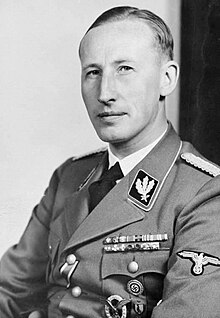
A good detective should always be honest, but not too honest
So says Bernie Gunther to a visiting Swiss detective (and crime fiction author) as Bernie produces from his pockets a bottle of pear schnapps and SS-etched glasses that he lifted from an stately home where he'd been a speaker at an international crime conference. Considering that the stately home had itself been appropriated from its owner by the SS, Bernie's pilfering seems only fair.
This latest 10th adventure of Bernie Gunther, cynical German gumshoe, takes place mostly in 1942, in Germany, Switzerland and Yugoslavia, with some flash-forwards to 1956 on the Côte d'Azur. The 1942 Bernie is back home in Berlin from his time in Smolensk as an investigator with the Wehrmacht War Crimes Bureau. (Yes, there really was such a thing––and no, of course the Nazis didn't investigate their own genocidal atrocities.)
Coming back to Berlin is a lot better than being in Smolensk, but it has its drawbacks. Bernie, no fan of public speaking, is coerced into giving that address at the international criminal conference. He's also once again summoned by Propaganda Minister Joseph Goebbels (whom Bernie calls––though rarely aloud––"Mahatma Propagandhi" or "Joey the Crip") to do a little job for him. The job is to travel to Yugoslavia to get a message to a certain Father Ladislaus from his long-lost daughter, who is now up-and-coming film starlet Dalia Dresner.
| Kerr says he based the Dalia character in part on film star––and inventor––Hedy Lamarr |
The plot thickens back in Berlin, with Goebbels "asking" Bernie to go to Switzerland on another Dalia-related errand, and SS spymaster Walter Schellenberg adding a side job that turns into a spy/counterspy drama worthy of a James Bond film. If you've read the Bernie Gunther books, you'll know that no matter how unrelated Bernie's two jobs appear, their paths will converge at some point, and the meeting will be explosive.
Kerr wasn't quite as skillful as usual in bringing his two story threads together. The Swiss story was far stronger, involving Swiss neutrality and threats against it, and I found myself wishing Bernie could have spent more time in Zurich, getting into trouble with spies of various stripes, including agents of the OSS, the predecessor to the current CIA. The trip to Yugoslavia was almost perfunctory, despite its blood-drenched horror. And Kerr, who normally weaves history seamlessly into his story, has the convoluted saga of Yugoslavia during World War II presented by using Dalia as a mouthpiece, in a lengthy and painfully stilted explanation to Bernie.
Despite the unevenness of the two plot threads and some clunkiness in exposition, fans of Bernie
Gunther should enjoy their time with this entry. Bernie, the German Sam Spade, is his usual acerbic self. More than a little ground down by nearly 10 years of coexisting with Nazis, he's still open to love––or a reasonable facsimile. As always, he's the bottom-line reason for reading this series. And here's a teaser: we learn the background to a bit of Bernie's personal history that I've wondered about for years.
It's also good to read that Bernie will be back in 2016. In his Author's Note, Kerr writes that the next novel in the series will be titled The Other Side of Silence.




.jpg)

